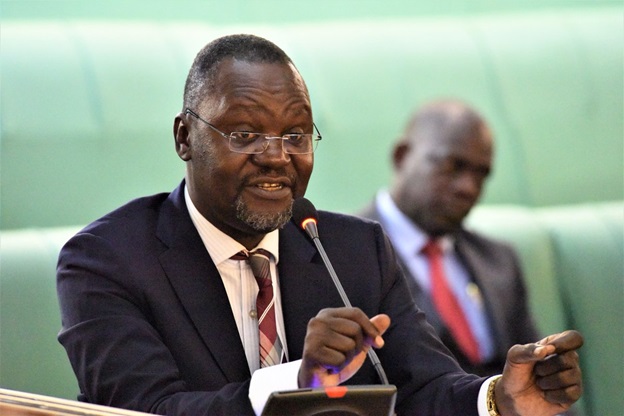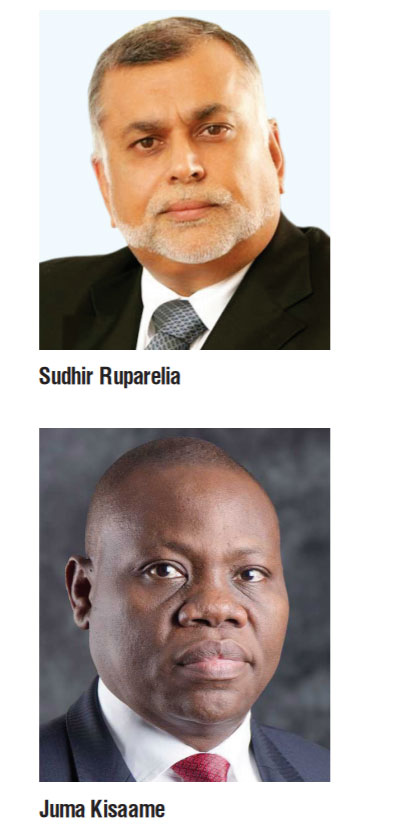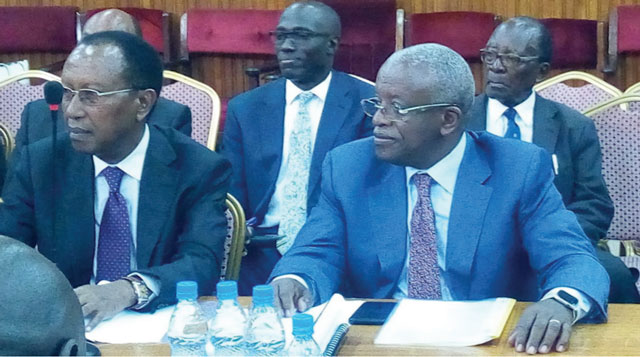
Bagyenda, Ssekabira cut dealCOSASE found that BoU rarely followed this and as a result in some of the cases marshaled the least amount of the financial institution’s assets.
For instance, COSASE found that assets of three banks–ICB, Greenland and Co-operative Bank—worth Shs145b were discounted by 93 percent and sold to an unregistered entity.
The report notes that BoU hired a company called M/s JN Kirkland and Associates to sell the assets of the three banks.
Kirkland then found another entity called Octavian Advisiors Plc, which incorporated a company in Mauritius as a special purpose vehicle for purposes of entering into contract with BoU over the assets in question.
JN, which was a consultant for BoU, then ended up as the local agent for Nile River with rights to run an account in Citi Bank in which all recoveries of the sold loan portfolio are deposited.
It emerged that Nile River was not registered as a local or foreign company, a clear violation of the Companies Act. Octavian was also not registered in Uganda.
Interestingly, Ssekabira who was the Director Commercial Banking and was as a result the agent of BoU, the seller, was also the agent of Nile River, the buyer.
In 2007, Ssekabira and Kakembo; lawyers of the buyer, travelled to the U.S. to meet the management of Octavian Advisors Plc. But when the committee asked him why he had travelled to the U.S., he said he did not know the purpose.
After Ssekabira’s USA trip, however, Octavian which had offered to pay $ 10 million for the loan book of the three banks ended up paying only $5.2 million.
The BoU ensured this by granting Octavian exclusivity in the dealings.
Katuntu’s committee learnt that Bagyenda, who was Ssekabira’s boss, single-handedly handled this transaction. She only notified Governor Mutebile after the transaction had been concluded. Octavian had already been awarded exclusivity rights on the deal at pre-bidding stage. The committee concluded that this action blocked any competition, which would return the highest possible bidder.
Then somehow Nile River got out of the picture and a new entity called SIL Investments Ltd started managing the assets of the three banks. SIL, the committee found, has been charging an interest of between 21-25 percent on these loans. Nile River, which was incorporated on Sept. 26 2007 in Mauritius was now defunct.
When COSASE pressed BoU and SIL to provide evidence of Nile River’s legal existence, they could not.
Both companies, the committee discovered, were not VAT registered and had never remitted any taxes out of its income earnings.
“The committee concludes that the transaction between BoU and M/s Octavian Advisors Plc. and her agents lacked transparency and the officers involved should beheld responsible for commissions and omissions which resulted in marshaling the greatest amount from the assets of the distressed financial institutions,” the report recommends.
Katuntu’s team also called upon the Inspector General of Police to immediately seize land titles and other securities from Mr Kakembo Katende of JN Kirkland and Associates and SIL Investments arising from the management of the loan portfolio previously managed under Nile River.
COSASE also called on the Uganda Revenue Authority to pursue the named firms and recover unremitted taxes.
In the case of Crane Bank, COSASE also found that BoU officials flouted the FIA.
The committee had heard that when Bagyenda, made a decision to sell Crane Bank, she just picked her phone and called the then Managing Director of dfcu, Juma Kisaame and invited him to her office at BoU.
Kisaame told the committee that dfcu was then granted access to Crane Bank assets between November 30 and December 20 2017.

On December 9, BoU then invited dfcu to bid for the assets and liabilities of Crane Bank. Dfcu then submitted its bid on December 20.
It was not until January 13 that a report prepared by PriceWaterHouseCoopers on behalf of BoU came out.
According to the law, this is the document BoU should have prepared before engaging any buyers of Crane Bank assets. BoU should then have based on this document to resolve Crane Bank.
Instead, having granted access to dfcu bank for it to do its own valuations and due diligence, BoU then relied on the valuations of dfcu to move to it assets of Crane Bank.
COSASE observed that by allowing this, BoU flouted the FIA. The committee wondered why BoU transferred the bad book to dfcu in the case of Crane Bank yet in the case of NBC and GTB, the bad book was never transferred to the purchaser.
Given that the Shs200 billion differed cash consideration was to be paid from the recoveries from the bad book estimated by DFCU in its bid (Dec. 20 2016) to be in the region of Shs 500 billion was fully provisioned by CBL, the committee added, the only prudential decision would have been to treat the bad book like in the case of GTB and NBC.

Secondly, the committee further observed, where as the outstanding liability owed to BoU by CBL was Shs478 billion, dfcu only assumed liability to the extent of Shs200 billion whose value was to be recovered from the bad book. This is in the committee’s considered opinion resulted in a financial disadvantage to both BoU and CBL.
The committee notes that a BoU Board sitting on December 15, 2016 had resolved that the Buyer of CBL would take all the assets and liabilities. However, BoU management concluded an agreement with dfcu that excluded some assets and liabilities from the deal. COSASE concluded that these exclusions disadvantaged BoU and CBL.
“BoU having failed to value the assets and liabilities of GTB, NBC and CBL and considering the lapse of time and impossibility in revaluation of assets should address the probable financial loss occasioned,” the committee recommended, “All BoU officials who failed to execute their duties in accordance with the law should be held responsible for their commissions and omissions.”
Overall, the report has attracted mixed feelings. For some, the recommendations in the report could completely change the central bank for the better.
But for many others, the report is “toothless” and it has made the entire investigation appear “a complete waste of time” and “resources”.
 The Independent Uganda: You get the Truth we Pay the Price
The Independent Uganda: You get the Truth we Pay the Price





